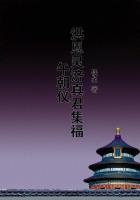Mr Harding has been now precentor of Barchester for ten years; and, alas, the murmurs respecting the proceeds of Hiram's estate are again becoming audible. It is not that any one begrudges to Mr Harding the income which he enjoys, and the comfortable place which so well becomes him; but such matters have begun to be talked of in various parts of England. Eager pushing politicians have asserted in the House of Commons, with very telling indignation, that the grasping priests of the Church of England are gorged with the wealth which the charity of former times has left for the solace of the aged, or the education of the young. The well-known case of the Hospital of St Cross has even come before the law courts of the country, and the struggles of Mr Whiston, at Rochester, have met with sympathy and support. Men are beginning to say that these things must be looked into.
Mr Harding, whose conscience in the matter is clear, and who has never felt that he had received a pound from Hiram's will to which he was not entitled, has naturally taken the part of the church in talking over these matters with his friend, the bishop, and his son-in-law, the archdeacon. The archdeacon, indeed, Dr Grantly, has been somewhat loud in the matter.
He is a personal friend of the dignitaries of the Rochester Chapter, and has written letters in the public press on the subject of that turbulent Dr Whiston, which, his admirers think, must wellnigh set the question at rest. It is also known at Oxford that he is the author of the pamphlet signed 'Sacerdos' on the subject of the Earl of Guildford and St Cross, in which it is so clearly argued that the manners of the present times do not admit of a literal adhesion to the very words of the founder's will, but that the interests of the church for which the founder was so deeply concerned are best consulted in enabling its bishops to reward those shining lights whose services have been most signally serviceable to Christianity.
In answer to this, it is asserted that Henry de Blois, founder of St Cross, was not greatly interested in the welfare of the reformed church, and that the masters of St Cross, for many years past, cannot be called shining lights in the service of Christianity; it is, however, stoutly maintained, and no doubt felt, by all the archdeacon's friends, that his logic is conclusive, and has not, in fact, been answered.
With such a tower of strength to back both his arguments and his conscience, it may be imagined that Mr Harding has never felt any compunction as to receiving his quarterly sum of two hundred pounds. Indeed, the subject has never presented itself to his mind in that shape. He has talked not unfrequently, and heard very much about the wills of old founders and the incomes arising from their estates, during the last year or two; he did even, at one moment, feel a doubt (since expelled by his son-in-law's logic) as to whether Lord Guildford was clearly entitled to receive so enormous an income as he does from the revenues of St Cross; but that he himself was overpaid with his modest eight hundred pounds--he who, out of that, voluntarily gave up sixty-two pounds eleven shillings and fourpence a year to his twelve old neighbours--he who, for the money, does his precentor's work as no precentor has done it before, since Barchester Cathedral was built,--such an idea has never sullied his quiet, or disturbed his conscience.
Nevertheless, Mr Harding is becoming uneasy at the rumour which he knows to prevail in Barchester on the subject. He is aware that, at any rate, two of his old men have been heard to say, that if everyone had his own, they might each have their hundred pounds a year, and live like gentlemen, instead of a beggarly one shilling and sixpence a day; and that they had slender cause to be thankful for a miserable dole of twopence, when Mr Harding and Mr Chadwick, between them, ran away with thousands of pounds which good old John Hiram never intended for the like of them. It is the ingratitude of this which stings Mr Harding. One of this discontented pair, Abel Handy, was put into the hospital by himself; he had been a stone-mason in Barchester, and had broken his thigh by a fall from a scaffolding, while employed about the cathedral; and Mr Harding had given him the first vacancy in the hospital after the occurrence, although Dr Grantly had been very anxious to put into it an insufferable clerk of his at Plumstead Episcopi, who had lost all his teeth, and whom the archdeacon hardly knew how to get rid of by other means. Dr Grantly has not forgotten to remind Mr Harding how well satisfied with his one-and-sixpence a day old Joe Mutters would have been, and how injudicious it was on the part of Mr Harding to allow a radical from the town to get into the concern.
Probably Dr Grantly forgot at the moment, that the charity was intended for broken-down journeymen of Barchester.
There is living at Barchester, a young man, a surgeon, named John Bold, and both Mr Harding and Dr Grantly are well aware that to him is owing the pestilent rebellious feeling which has shown itself in the hospital; yes, and the renewal, too, of that disagreeable talk about Hiram's estates which is now again prevalent in Barchester. Nevertheless, Mr Harding and Mr Bold are acquainted with each other; we may say, are friends, considering the great disparity in their years. Dr Grantly, however, has a holy horror of the impious demagogue, as on one occasion he called Bold, when speaking of him to the precentor; and being a more prudent far-seeing man than Mr Harding, and possessed of a stronger head, he already perceives that this John Bold will work great trouble in Barchester. He considers that he is to be regarded as an enemy, and thinks that he should not be admitted into the camp on anything like friendly terms. As John Bold will occupy much of our attention we must endeavour to explain who he is, and why he takes the part of John Hiram's bedesmen.














